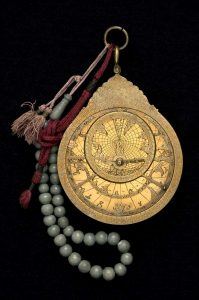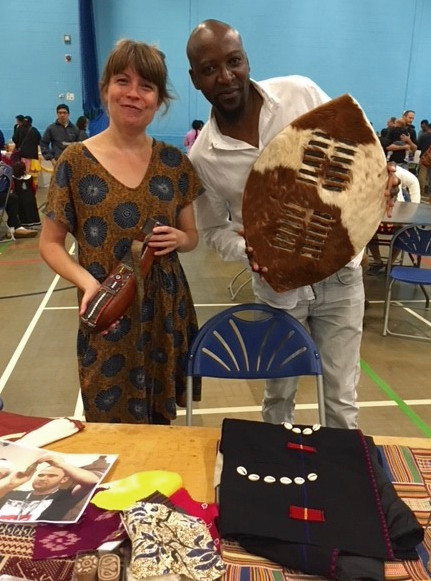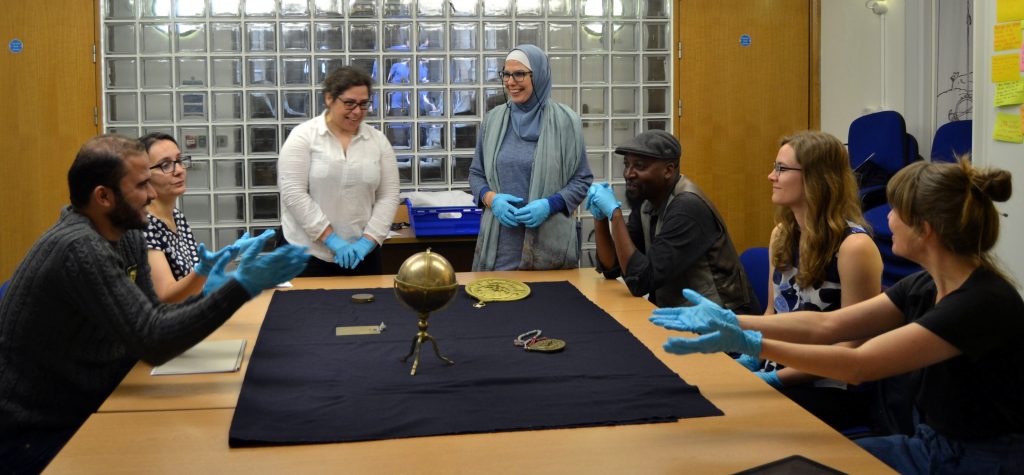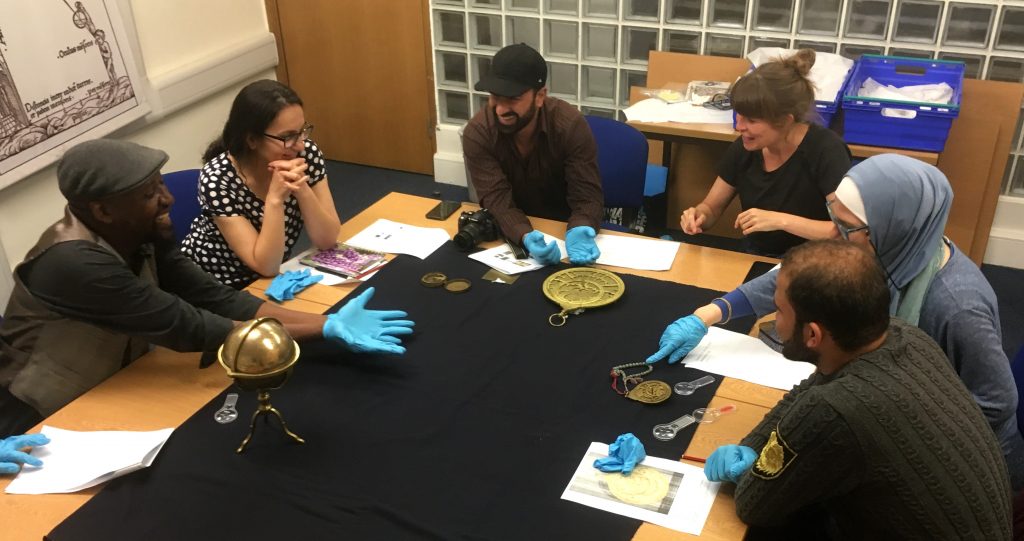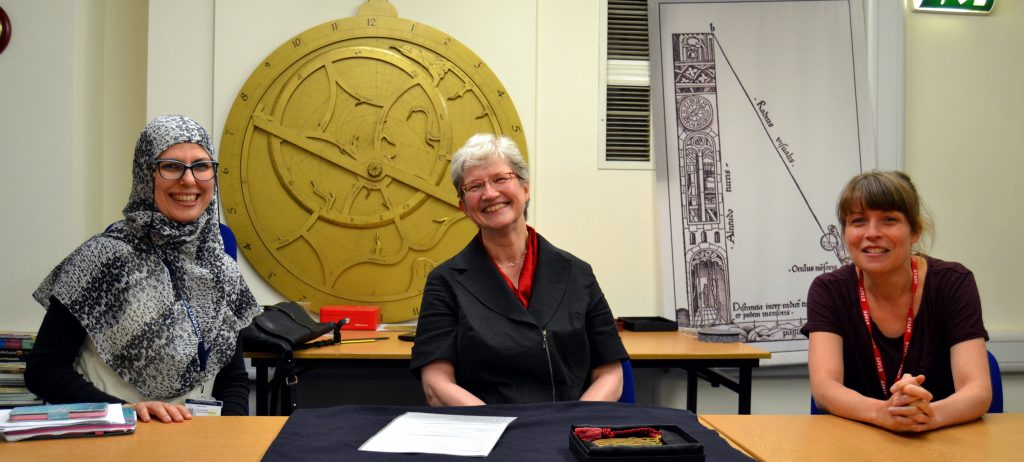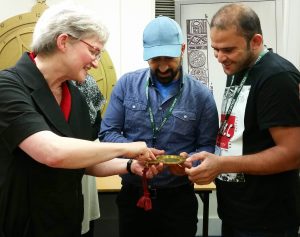My favourite object: an Islamic astrolabe
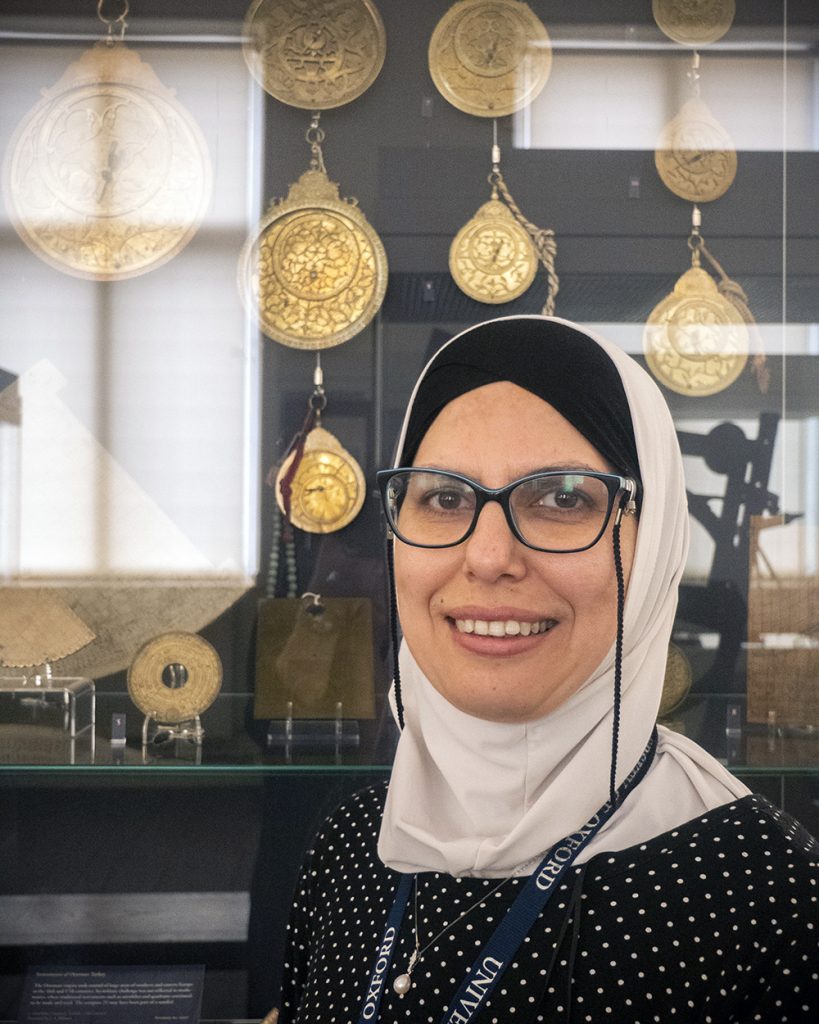
Rana Ibrahim, the Museum’s Collections Project Officer (Multaka-Oxford), tells us about her favourite object, an astrolabe engraved with a Quranic verse.
I am the Collections Project Officer on the Esmée Fairbairn-funded Multaka-Oxford project, an inclusive volunteering project which works with local people and partners at the History of Science Museum and the Pitt Rivers Museum. As Collections Officer I work mostly with the Islamic scientific instruments at the History of Science Museum. This includes astrolabes and Qibla indicators. I am working to make them more accessible and interesting to all our visitors.
One of my favourite objects at the Museum is this astrolabe by Khalil Muhammad ibn Hasan `Ali. It was made in about 1700. One of the reasons I admire it is because of the Quranic inscription of ‘Ayat Al- Kursi’ (The Throne Verse) engraved on the brass, which is a very significant verse in the Quran. It is one of the verses that all Muslims memorise by heart and read after each prayer to strengthen their connection to Allah. I also love the prayer beads attached to the astrolabe, which makes me think that the person who used it could have been an Imam of a mosque. Prayer beads (misbaha) are very important to Muslims as they help focus and calm the mind before and after prayer.
What is an astrolabe? They are astronomical tools invented by the ancient Greeks and further developed in the Islamic world from the 700s onwards. It is said that they have over 100 uses. One of the many uses for Muslims was to find the five prayer times in a day and also to calculate the date for Islamic months such as Ramadan.
In 2019, Ramadan started on 6 May and it will end on today (Tuesday 4 June). This Ramadan I would like to wish you all a very pleasant month and a happy and healthy year of 1440 Hijri. Remember, it’s a magical month for everyone on earth and may all your wishes come true in time, Inshallah. Make some wishes and Eid Mubarak!
Winning awards
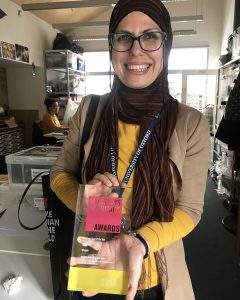
In May the Multaka-Oxford Team won the Museums + Heritage Award for Volunteer Team of the Year! Talking about the Volunteer Team, Diane Lees (Chair of the 2019 judging panel) said “the genuine mutual benefit to both organisation and volunteer is clear to see … They have shared their experience, insight and expertise to collaborate and to reach new audiences, helping the museums to be more relevant and accessible to their communities.”
Not only did they win Volunteer Team of the Year, Multaka-Oxford was also Highly Commended for Partnership of the Year. The project has partners from across the city and beyond. Together our work is stronger – thank you Asylum Welcome, Refugee Resource, Syrian Sisters, Connection Support, Oxford City Council, Aspire Oxford and Sanctuary Hosting, and the Esmée Fairbairn Foundation Collection Fund who have made the project possible.
